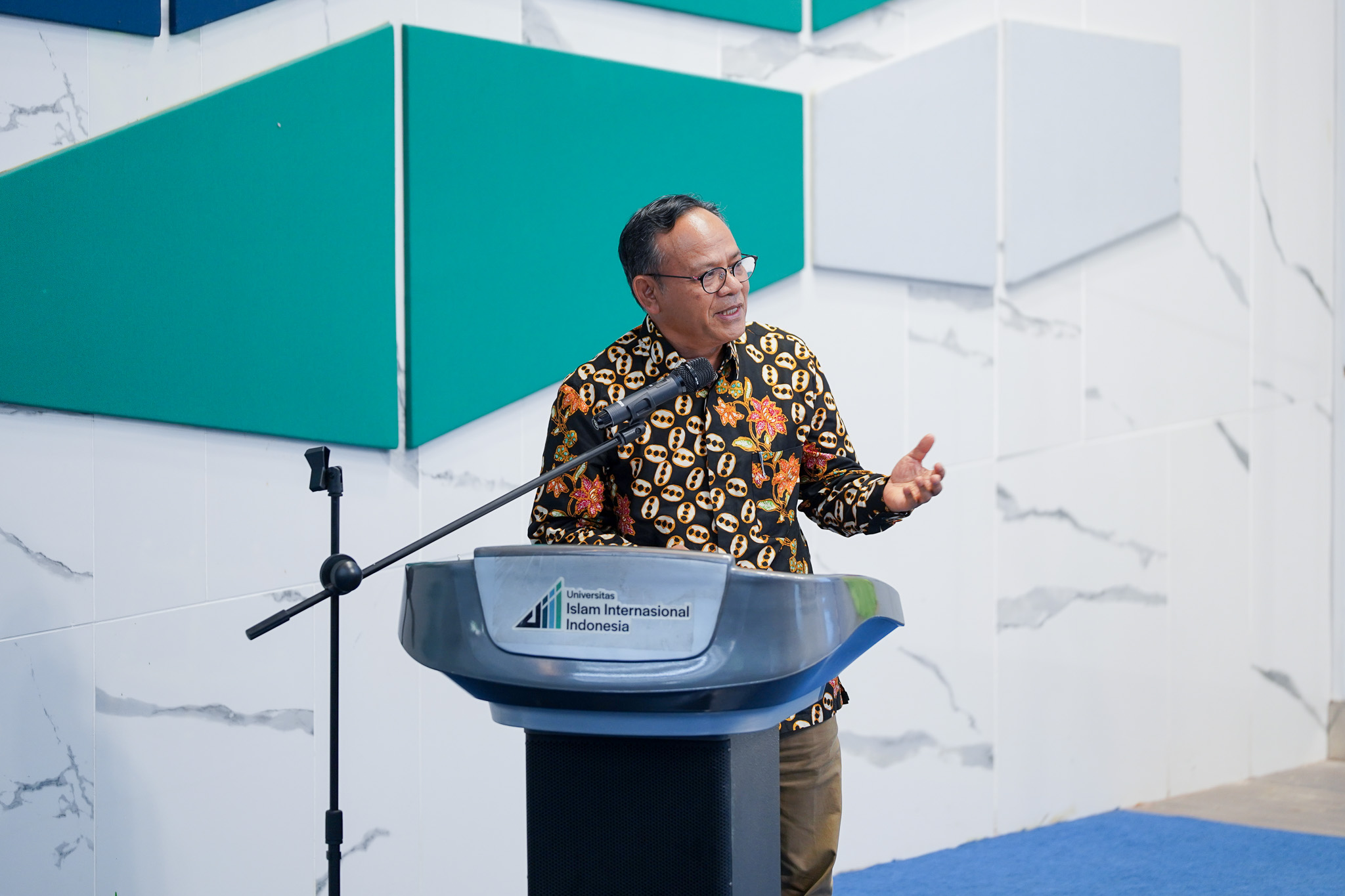More From News
The Moral Responsibility of the Intelligentsia
January 20, 2026
From Depok to New York: How UIII Prepared Me for a U.S. PhD
January 18, 2026
It’s Here at UIII, Where My Intellectual Journey Truly Began
January 18, 2026
May 23, 2025
By Dadi Darmadi | Photo: Dewan Pers & Achmad Jatnika

On May 14, 2025, Prof. Komaruddin Hidayat stepped into the role of Chairman of the Indonesian Press Council (Dewan Pers) after being unanimously chosen by its members in Jakarta.
The moment was marked by a simple but meaningful handover from the outgoing chair, Ninik Rahayu, who passed him a book summarizing the council’s work from 2022 to 2025.
Titled “Maintaining Journalism Quality Amid Declining Press Freedom Indices,” the report laid bare the tough road ahead. For Komaruddin, a former journalist and respected academic, this new role is both a challenge and a calling.
From Newsrooms to Lasting Connections
Back in his younger days, Komaruddin was a journalist, diving into the fast-paced world of news and building friendships with all sorts of people. “I never thought those connections I made 30 years ago would still be so important today,” he says with a warm smile. Those relationships have become a strong support system as he takes on this leadership role.
His path wasn’t just about journalism, though—he went on to become a prominent academic, serving as rector of Syarif Hidayatullah State Islamic University in Jakarta for two terms (2006- 2010 and 2010-2015) and later making history as the first rector of the Universitas Islam Internasional Indonesia (UIII) from 2019 to 2024.
These experiences shaped him into a trusted voice for Indonesia’s educated community, which led to his role on the Press Council as a community representative.
An Unexpected Role
Komaruddin had served as a council member before, but becoming chairman? “I never saw that coming,” he admits with a chuckle. The Press Council brings together three groups—media companies, professional journalists, and community representatives—and Komaruddin’s election shows the faith others have in his ability to lead them.
During the handover, when Ninik gave him the council’s report, he felt the weight of the job. “Just reading the title of that book tells you how big the challenges are,” he said in his speech, pointing to the struggle of keeping journalism strong in tough times.
A Tough Time for News
Right now, the world of journalism is at a crossroads. Traditional news outlets are still doing their job, but they’re losing ground to the internet, social media, and even artificial intelligence (AI). These platforms let anyone share information, which sounds great—until you realize not everyone knows how to spot what’s true and what’s not. “That’s the problem,” Komaruddin explains.
“People can get confused by hoaxes or unverified news.” He sees AI as something that could do a lot of good but could also cause trouble if it’s not handled carefully. To stay focused, he’d been avoiding social media for a month before taking this role. “I was trying to keep my mind clear of all the noise,” he says. “But now, I have to dive in and understand what’s going on with news and information.”
For Komaruddin, the Press Council’s job is straightforward: make sure journalism stays a vital part of democracy. “We’re here to help the press inform and educate people,” he says firmly.
He’s building on the ideas of the late Prof. Azyumardi Azra, a former council chairman, who believed the council should work with the government as a critical partner, fight for press freedom, improve journalism standards, and look out for journalists’ well-being.
A Call to Campuses and Communities
As someone who’s spent years in academia, especially as UIII’s first rector, Komaruddin believes universities have a big role to play.
“We need to work together to create a culture where people produce and share knowledge that’s trustworthy and helpful,” he says. He’s calling on campuses to help teach the public how to tell good information from bad. It’s a mission he’s passionate about, rooted in his belief that an informed society is a stronger one.
Leading with Care and Commitment
With his deep experience, wide network, and genuine care for the public, Komaruddin is ready to guide the Press Council through a tricky time. He knows journalism has to adapt to new technology while staying true to its purpose of telling the truth. As he takes the helm, he’s focused on one thing: making sure the press keeps serving as a clear, honest voice for Indonesia’s democracy.
“Journalism is a cornerstone of democracy,” Komaruddin says with conviction. “In a world where anyone can post information online, it’s our job to work harder to ensure the truth rises above the noise.” []
Universitas Islam Internasional Indonesia